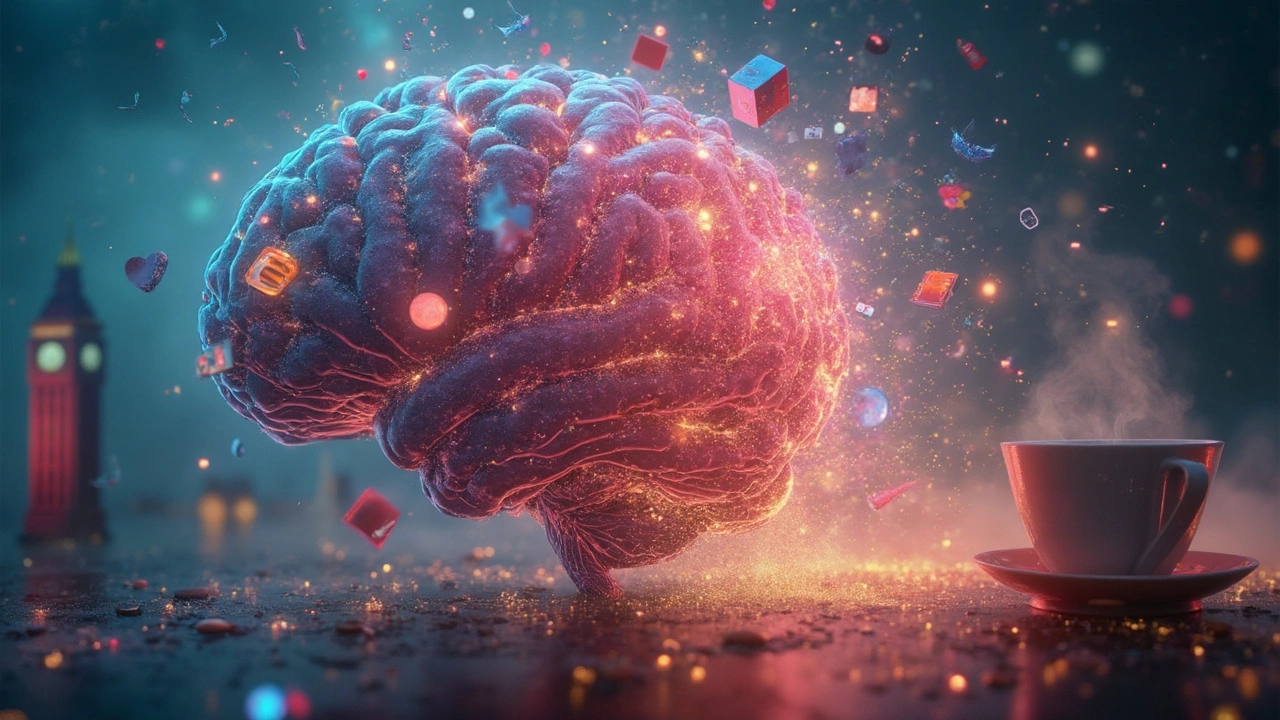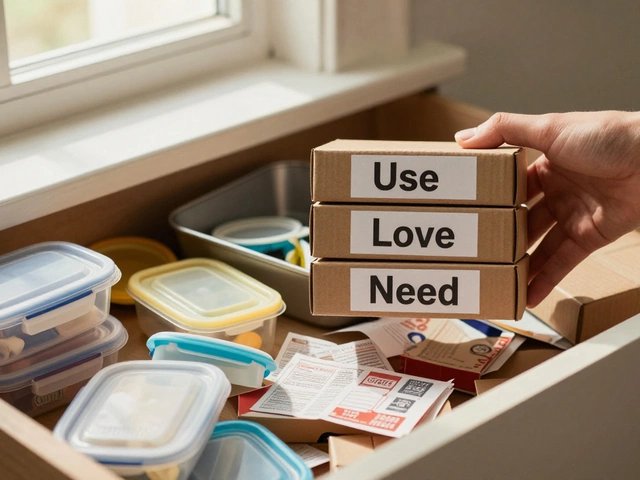Want to know the absolute best mental activity? You’re not the only one. Most people assume crosswords or meditation might be the top choice, but the truth is, your brain doesn’t stick to one favorite workout. It actually thrives when you throw different challenges at it—just like how your muscles adapt when you switch up your gym routine.
We often forget that the brain is a bit like a computer that needs updates. If you keep doing the same easy stuff, it gets lazy. Science shows that people who keep learning new things—like picking up a new instrument at 40, learning a new language, or playing strategy games—tend to stay sharper as they age.
Here’s something you might not know: even everyday stuff, like navigating a new neighborhood or cooking a recipe you’ve never tried, fires up different areas of your brain. That means you don’t have to spend a fortune on brain-training apps to get the benefits.
- Why Your Brain Loves a Challenge
- Popular Mind Exercises Compared
- Surprising Activities That Keep You Sharp
- Building Mental Fitness Into Everyday Life
- Tips for Making It Stick
Why Your Brain Loves a Challenge
Your mind isn’t built to coast along on autopilot. Actually, the more you push it with new stuff, the better it works. That’s because learning gives your brain a real workout. Every time you test it, your brain starts making more connections between its cells. This process is called neuroplasticity—and it’s exactly what keeps you sharp, quick, and focused.
Think of it like this: if you do the same boring puzzle every day, your mind might get better at that puzzle, but it won’t help with anything new. But if you switch things up and try stuff that feels hard, that’s when the magic happens. Even something as simple as brushing your teeth with your non-dominant hand can light up new brain circuits.
Scientists who’ve studied seniors and young adults put this to the test. People who started new hobbies—like digital photography or quilting—showed quicker thinking and better memory in just a few months. A team at the University of Texas found that folks who tackled fresh learning challenges showed more activity in the hippocampus, a key memory area.
Want proof your brain likes being pushed? Here’s a quick rundown:
| Activity | Brain Effect | Study/Source |
|---|---|---|
| Learning a new language | Boosts memory and attention | Journal of Neurolinguistics, 2022 |
| Strategy gaming (e.g., chess) | Improves planning & problem-solving | Frontiers in Psychology, 2021 |
| Dancing | Increases coordination, slows brain aging | New England Journal of Medicine, 2003 |
| Crossword puzzles | Delays memory decline | JAMA, 2019 |
Here's the kicker: it's the fresh stuff that lights up your mental activity the most. If your routine never changes, your brain doesn't get a chance to grow. So next time you're tempted to just scroll, try something new—even if you stink at it at first. That's where the real growth starts.
Popular Mind Exercises Compared
So what mental activities actually get your brain moving? Let’s stack a few crowd favorites side by side and see how they help you. Not all brain workouts are created equal, and each one flexes different mental muscles.
Mental activity like puzzles, for example, isn’t just about passing the time. Crosswords boost your vocabulary and memory. Sudoku and number games help with logic and problem-solving. A 2022 review showed adults who regularly do puzzles like Sudoku experience slower cognitive decline as they age.
Then there’s meditation. Mindfulness isn’t just hype. According to research out of Harvard, people who practice mindfulness meditation a few times a week actually grow grey matter in areas tied to learning and emotion control. That means you might feel less stressed and remember stuff better.
Video games get a lot of bad press, but studies have found action games can make you react faster and improve your focus. Strategy games help with planning and multitasking—the stuff you need for juggling a busy week.
- Puzzles: Good for memory and logic. Simple to start—apps and newspapers are full of them.
- Meditation: Lowers stress and builds concentration. You just need a quiet spot and 10 minutes.
- Video games: Improve reflexes and attention. Look for games with strategy elements, not just the ones that go pew-pew.
Learning new skills is another big player. Picking up a foreign language, for example, lights up almost every area of your brain. One German study found adults who took language classes boosted their attention span after just three months.
If you’re not a fan of screens or sitting still, get moving. Dancing, especially if you’re learning new moves, pushes your memory, balance, and coordination at the same time. Argentine tango or even line dancing can be a legit brain workout.
The takeaway? Mix things up. Your brain likes variety. Pick one or two mental exercises you enjoy and swap them out whenever you start to get bored. The more ways you challenge yourself, the sharper you stay.

Surprising Activities That Keep You Sharp
If you think brain fitness is only about solving puzzles or doing math problems, you’re missing out on a lot of fun ways to boost your mind. Tons of everyday activities crank up your mental gears in ways you might not expect. Research from the University of Edinburgh found that people who started learning a new skill in their forties—not just cognitive training, but stuff like painting or dancing—showed better memory and faster thinking compared to those who stuck to routine tasks.
Here’s a quick look at some of the most unexpected mind-boosting activities:
- Mental activity in the kitchen: Cooking something outside your usual go-to recipes is like sending your brain to the gym. You have to remember steps, measure, and multitask. Even better if you try a new spice or cooking style.
- Dancing: Not just for cardio—trying to remember steps or improvise new moves activates multiple parts of your brain, especially the part that handles focus and balance. Argentine tango was even linked to better memory in older adults in a 2022 UCLA study.
- Video games: Yes, really. Strategy and puzzle games can improve reaction time and problem-solving. Older adults who played certain games for just 30 minutes a day improved their attention by up to 15% in a recent Oxford study.
- Learning a new language: Juggling grammar and vocabulary sharpens both memory and multitasking skills. Plus, people who pick up a new language tend to delay the onset of age-related cognitive decline by 4-5 years, according to a study from York University.
- Volunteering or mentoring: Teaching others forces your brain to re-organize knowledge and make it easier for someone else to understand, which is a great workout for long-term memory.
Some hobbies even offer more than one benefit. Take gardening: thinking about plant growth and planning your space uses strategy, while matching plant colors or arranging flowers taps into creativity, and hands-in-soil work bumps up your mood thanks to natural ‘happy chemicals’ released in the brain.
Here’s how different brain-boosting activities stack up according to recent data:
| Activity | Memory Gains | Boost in Focus | Improves Mood |
|---|---|---|---|
| Cooking New Dishes | ✔️ | ✔️ | ✔️ |
| Dancing | ✔️ | ✔️ | ✔️ |
| Playing Video Games | ✔️ | ✔️ | |
| Learning Languages | ✔️ | ||
| Volunteering/Mentoring | ✔️ | ✔️ | |
| Gardening | ✔️ |
Changing things up is key. Your brain loves novelty. Swapping out just one routine activity for something new each week—like taking a dance class or teaching someone a skill—keeps your mind flexible and strong. Don’t stress about being perfect; the real reward is in showing up and challenging yourself in new ways.
Building Mental Fitness Into Everyday Life
Getting your brain in top shape doesn’t mean you need to carve out hours for puzzles or buy expensive brain games. Most experts agree: working mental activity into daily stuff is what really works. Think of it like brushing your teeth—small, regular actions that make a big difference over time.
Here’s a look at simple actions you can add to your routine that science says give your mind a boost:
- Switch up routines. Take a new route to the grocery store. This makes your brain form new pathways.
- Talk to people of different ages or backgrounds. These conversations nudge your thinking in fresh directions.
- Try doing things with your non-dominant hand, like brushing your teeth or stirring food. Sounds silly, but it’s proven to light up less-used areas of your brain.
- Read or listen to a topic you don’t know much about. Curiosity keeps your brain hungry and active.
- Play strategy games like chess or planning games—even five minutes on your phone has a positive impact.
Mixing up your mental activity actually makes a big difference long-term. One study published by the Journal of the American Geriatrics Society found adults who added simple mental tasks, like learning a new skill or using memory tricks, improved their thinking skills for at least five years.
Let’s check out some everyday brain boosters and the amount of mental engagement they offer, based on activity:
| Activity | Estimated Brain Engagement* | Time Needed |
|---|---|---|
| Learning a new word | Low | 1-2 min |
| Cooking a new recipe | Medium | 30-60 min |
| Playing chess online | High | 10-30 min |
| Switching commute routes | Medium | Varies |
| Practicing a language app | High | 10-15 min |
*Brain engagement estimates are based on studies using fMRI scans to track which areas of the brain light up during different daily activities.
The best part? You don’t have to overhaul your day. You just have to sprinkle a few new things in, keep them interesting, and stay curious. Your mind will thank you in ways you’ll notice—like remembering names, following conversations, and getting creative with solutions. Tiny choices add up to big mental wins.

Tips for Making It Stick
Sticking with any mental activity routine is where most of us get tripped up. The big secret? You don’t need superhuman willpower—you just need a few habits that make brain workouts a part of your life, not a chore hovering over you.
Start by picking an activity you actually like. If Sudoku drives you nuts, try something social like a weekly board game night or join a local trivia team. Studies show that enjoyment increases how long you’ll stick to new habits.
Consistency wins over intensity. Five minutes a day on a brain-boosting game or reading a chapter from a book is way better than a two-hour session once a month. A 2023 research team at Harvard tracked adults who did quick, regular sessions of challenging mental tasks and found those folks saw sharper improvements than people who did rare, long sessions.
- Schedule it: Attach brain-friendly tasks to stuff you already do. Try listening to a language podcast with your morning coffee or work on a puzzle during lunch.
- Mix it up: Rotate between memory games, creative writing, and social activities. Mixing things keeps your mind from running on autopilot.
- Track your progress: Use an app or even a sticky note on your fridge. Progress feels good—and science says it keeps motivation alive.
- Buddy up: Doing a new hobby or learning with a friend keeps it fun and holds you accountable. And a University of Michigan study found that social participation itself boosts mental sharpness over time.
Finally, give yourself some credit. Missing a day here or there isn’t failure. It’s just normal life. Getting back on track, without guilt, is what counts for your brain in the long run.





